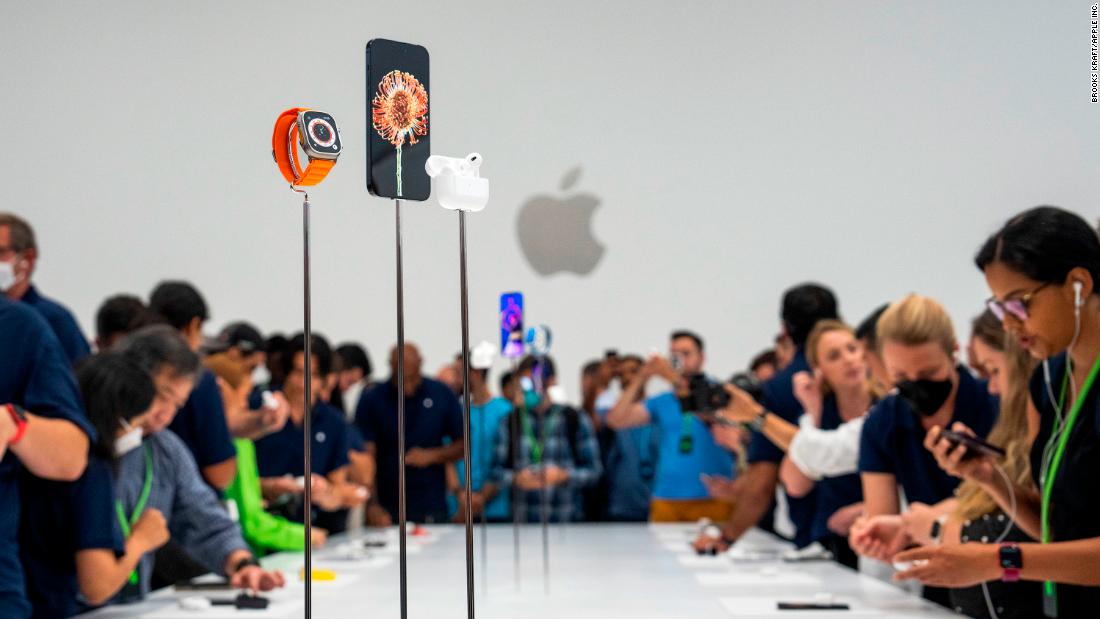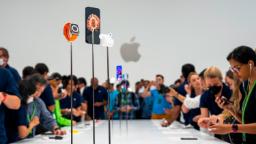

In another example, a 27-year old high school teacher who went to the emergency room after her Apple Watch detected an abnormally high heart rate. According to the teacher, “My doctor said, ‘It was your watch that saved your life.”
Apple has long presented its products as tools for creativity, productivity and a positive, if aspirational, lifestyle filled with friends and family, healthy habits and outdoor activities. Some of that was still on display at this year’s event, but there was a new messaging, too. The company positioned many of its products and features as safety nets in a shaky world.
Apple announced new car-crash detection technology on both the Apple Watch and iPhone which it says can determine the “precise moment of impact” using the device’s barometer, GPS and microphone. “We truly hope you never need it, but feel a little bit safer every time you get into a car,” said Ron Huang, Apple’s vice president of sensing and connectivity, during the announcement.
While arguably a continuation of Apple’s focus on health features, particularly with its smartwatches, the emphasis on these fearful use cases nonetheless raised some eyebrows among industry watchers. “It was a little surprising to see Apple reach for the alarmist approach and position their devices as potential life savers,” said Ramon Llamas, research director at market research firm IDC.
“These emergency features are like the safety bags in your car: you aren’t going to need them all the time, but you’re grateful when you do,” Llamas said.
The shift in tone comes as Apple confronts a new economic landscape that could make it harder to convince customers to pay three- and four-figure amounts to upgrade their devices — especially when some of those products are not substantially different from the prior year.
“Refinement over revolution isn’t a bad thing but if purses are tightening with the economy then these announcements are a harder sell without anything groundbreaking,” said Eric Abbruzzese, a research director at market firm ABI Research.
The emphasis on health and safety could also help Apple bolster its subscription services business, Abbruzzese said, which has been one of its fastest-growing revenue lines in recent years. As he points out, the satellite connectivity is “only free for two years.” (Apple has not specified how much it costs after that.) Moreover, “advanced health tools seem like just another way to sell Fitness+ more strongly.”
